Remote Western France Comes to London in Peter Joyce Exhibition
- LONDON, United Kingdom
- /
- March 05, 2015
The extraordinary marsh landscape of Western France and its rare salt pans is coming to London, in the form of paintings by highly regarded abstract painter, Peter Joyce.
Jenna Burlingham Fine Art is holding its first solo exhibition in London for Joyce entitled ‘Moving South’. The exhibition is to be held at Gallery 8, 8 Duke Street, St James’s, London, SW1Y 6BN on Wednesday, May 6 - Sunday, May 10 2015.
Peter Joyce – who is fast being recognised as one to watch by collectors and interior decorators - is well known and highly regarded among Modern British artists. His work is exhibited at all the main London art fairs and held in private and public collections all over the world. He is someone who prefers to be outside, especially in the Marais Breton Vendeen in western France where his studio is. This extraordinary marshland landscape pervades his work, apparently subliminally for he makes his paintings behind the closed doors of his large workspace. Although he sees himself as an abstract painter, the English tradition of landscape painting and a recognizable nod towards post war Modern British Art are unmistakable. This said, Joyce is very much an artist working in 21st Century Europe.
The title of the exhibition refers not only to the physical move the artist Peter Joyce has made from Dorset to La Vendee in France but also to the noticeable influence this move has had on his work. The palette is brighter, the paintings are more open and this is the consequence of the combination of his proximity to the sea, the longer sunshine hours, the warmth and the quality of the light.
Twenty-two paintings reveal Joyce’s concentrated study of the salt pan areas. It is an extraordinary area of polders and wet meadows crossed by canals and ditches, which Joyce has thoroughly explored and researched by walking, mapping and photographing. The exhibition is carefully put together as a whole,although each painting in itself is a complete piece of work.
The body of work as a whole documents the area and the titles can evoke a sense of time; September, Dried Earth and Rosehip Evening, to name just a few, there are also ones that evoke the weather; Summer Storm, Storm Light, Flooded Pools. Other paintings deal with the changing colour through flora; Water Primrose (an invasive plant not native to the area that chokes the waterways with it’s beautiful yellow flowers) Into Autumn (which is about the pinks from the fauna and the late summer sun). Still others are about the place/structure of the landscape: Fenced pool, Seaweed Catcher, Divided Digue (Digue is the French for a seawall).
“His resulting work may appear quite abstract,” says Jenna Burlingham, Peter Joyce’s main representative, “and indeed he thinks of himself as an abstract artist. But the pictures would not look like they do if it was not for the landscape in which he immerses himself and some of them are in fact quite literal –colours, shape, form and texture are all taken directly from life.”
Joyce has a distinctive style, his paintings are created layer by layer and the surface, like the landscape itself, is worked and re-worked. Drawing, painting and compositional changes are endlessly made creating complicated yet enchanting surfaces. Each layer is changed and often removed as if by erosion mimicking the landscape itself. The process continues until the painting reminds him of the place and the place reminds him of the painting.
Of the exhibition, Joyce says: “For me, painting is anatural extension of my love of the outdoors. I enjoy weather, wildlife, geography and the seasons. Somehow, painting is an extension of that.”
Of the Marais Breton Vendeen, he says: “I love being here, it’s a challenging landscape reclaimed from the sea. Maybe it isn’t so immediately obvious in terms of aesthetic appearance as my home county of Dorset. It isn’t hills, valleys and cliff faces, it is endlessly flat and apparently featureless. It rewards perseverance on the aesthetic level, very much like painting. The area resists easy translation onto canvas. I’m comfortable with that though, my painting is a seemingly endless set of questions and answers, of working and reworking and of trial and error. I enjoy the process of struggling with paint, I am a painter, paint is my medium and I choose the subject of what I see. I love the marsh landscape as much as I loved Dorset. ”
For more information on Jenna Burlingham Fine Art, please visit
www.jennaburlingham.com

100x100_n.jpg)
100x100_c.jpg)
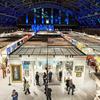

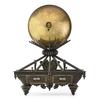
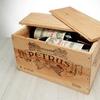


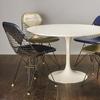
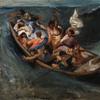

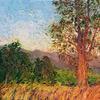
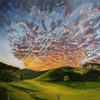
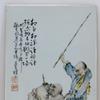

100x100_c.jpg)